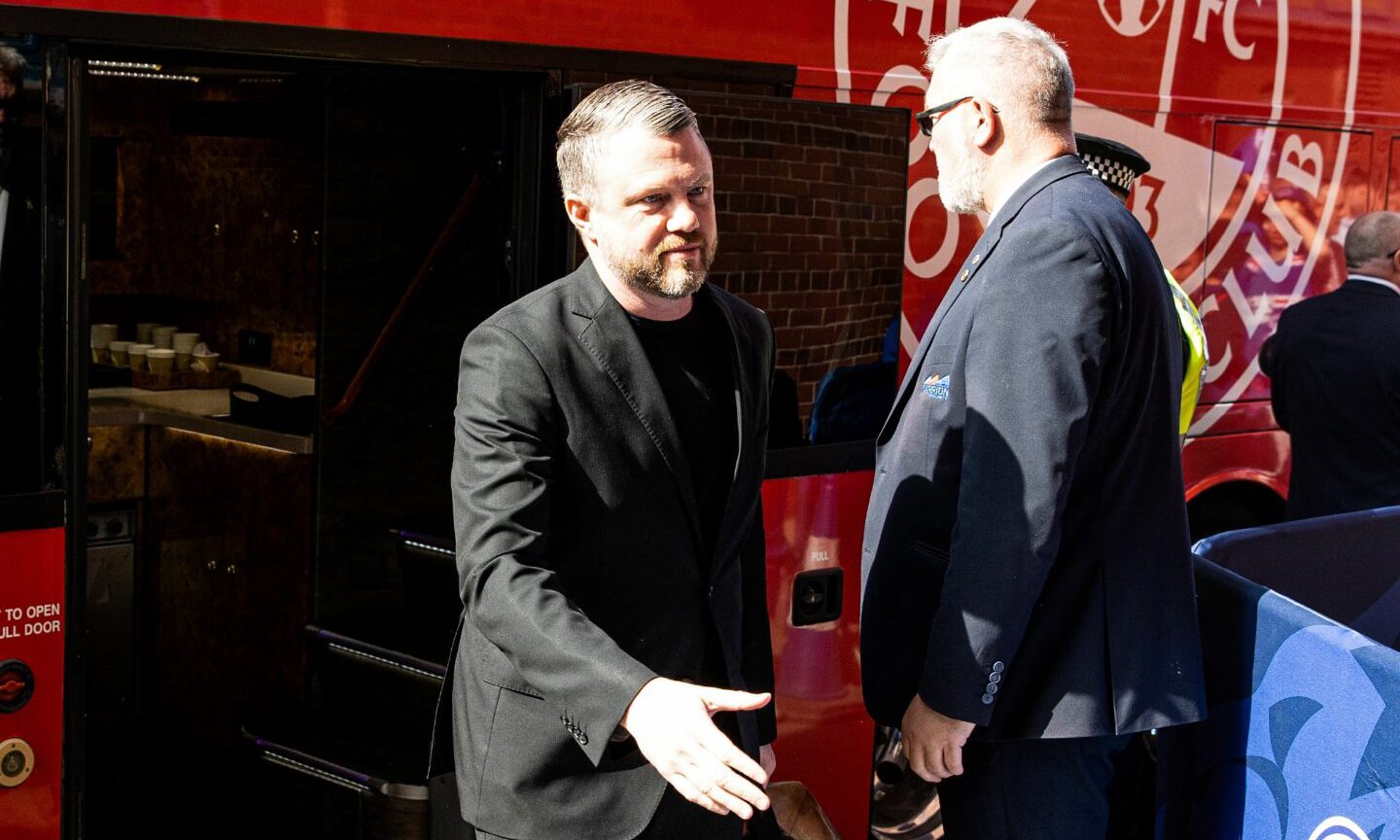Friday briefing: The pain from Donald Trump's tariffs are already kicking in - will there be any gain?
Good morning.
Donald Trump advocated for tariffs not just in the 2024 presidential campaign but for decades prior, so his pledge to impose them if re-elected should come as no surprise. Yet when the US president finally unveiled his plans on Wednesday, the measures were even more sweeping than most had anticipated. No one has been spared, not even Percy Pig.
Standing on the White House lawn, flanked by a comically giant cardboard chart, Trump announced a blanket 10% tariff on virtually all imported goods, along with what he termed “reciprocal” tariffs on countries he claims are unfairly exploiting the US.
China has been hit particularly hard, with the total levy on Chinese imports reaching 54%. Unsurprisingly, Beijing has vowed to retaliate. But even America’s allies have not been spared: the EU faces a 20% tariff, the UK faces 10%. Japan, hoping to avoid Trump’s ire by pledging to boost US investment to $1tn, has had no such luck, facing tariffs of 24%. Canada and Mexico have been exempted from this round of tariffs, though they have faced their own trade battles with the president. The news was received incredibly poorly by global financial markets. All three major US stock markets closed down in their worst day since the Covid pandemic and Asian markets opened with further losses this morning.
For today’s newsletter, I spoke with Dr James Scott from the political economy department at King’s College London on the potential fallout of Trump’s tariffs. That’s right after the headlines.
The tariffs are the most full-throated expression yet of Trump’s “America First” protectionism, and potentially marks a new era of global trade war. The administration has promised a transition period, acknowledging the likelihood of economic pain for US consumers while insisting that things will all work out in the end. However, it is unclear that US politicians are willing to weather this storm as the first signs of a political backlash in the president’s own party emerge.
***
Trump has cited various reasons over the years for his fixation on tariffs, but this latest iteration is largely driven by “good old-fashioned nostalgia”, says Scott – specifically, for the 1950s, when the US dominated global manufacturing. Trump’s vision is that these tariffs will spark a revival of that manufacturing boom.
However, there are several major flaws in his reasoning. Firstly, that era was a unique moment in American history that cannot be recreated. “All of its competitors, namely Europe and Japan, had been completely flattened during world war two, whereas the US hadn’t, so it found itself in an extraordinary position where there was massive demand for its manufacturers,” Scott explains.
Secondly, shifting production to the US would be prohibitively expensive for many companies. Will they be willing to take that risk when there is no guarantee tariffs will remain in place for months, let alone years? While some firms have begun exploring US manufacturing expansion, many may simply wait out the uncertainty and see what happens once the dust settles.
Another challenge is the majority of manufacturing job losses over the past 40 to 50 years, driven by productivity growth and technological advances. “You simply do not need as many people now to make stuff as you used to,” Scott says.
A rough calculation by the Centre for European Economic Policy and Research found that even if Trump were somehow able to eliminate the US trade deficit solely by boosting manufacturing (an unlikely scenario), it would only increase manufacturing employment by one percentage point. “You’re not going to see mass manufacturing employment as it existed in the 1950s, in the same way that we’re never going to see mass agricultural employment like we had 200 years ago,” Scott adds.
***
The reciprocal tariffs will not take effect until 9 April, but when they do, there is a strong likelihood that retaliatory measures will drive up prices across a wide range of goods. The UK’s business secretary has launched a formal process to retaliate against Donald Trump’s tariffs if Britain does not secure a trade deal with the US.
Europe and the UK will likely also face indirect pain. A surplus of low-cost goods, displaced by US tariffs, may flood European and British markets, making it harder for local companies to compete.
Some of the world’s poorest countries have been hit with some of the steepest tariff rates. Lesotho, Cambodia, Laos, Madagascar, Vietnam and Myanmar have been slapped with rates between 45% and 50%, which could inflict severe economic damage during a time when the US has already withdrawn aid to many countries.
***
No one knows exactly how this will play out long term, in part due to Trump’s mercurial nature, but the market reaction so far has been overwhelmingly negative. The Nasdaq fell 6%, while the S&P 500 and the Dow dropped 4.8% and 3.9% respectively.
The US dollar weakened against other major currencies, hitting a six month low, while oil prices tumbled. However, Paul Diggle, chief economist at Aberdeen, told the Guardian that market turmoil may not be enough to sway the administration. “So far, the administration appears far more tolerant of market weakness than in Trump’s first term,” he said. The vice-president, JD Vance, said the stock market reaction “could be worse” and faulted critics as taking a short-termist view.
The Wall Street Journal found that if the tariffs remain in place, inflation could rise from 2.5% in February to 4.4% by year’s end, while unemployment could climb from 4.1% to 5.5%. The risk of recession is also increasing, all of which could harm the very people Trump claims to be fighting for.
“The US is already suffering from a loss of consumer and business confidence, and this will only exacerbate that,” Scott says. “Businesses hate uncertainty, and, frankly, consumers don’t like it either – they’ll just hunker down and stop spending.”
Beyond the bravado and the clear attempt to wield economic leverage, the broader critique of globalisation is not without merit, Scott says. “Blue-collar workers have faced wage stagnation and rising inequality for decades. But the tragedy is these policies, supposedly intended to address that, are unlikely to succeed – and the very people they aim to help will be hardest hit by inflation. That could deepen the general disillusionment with politics, which is deeply concerning.”
| Enzo Fernández’s header from Cole Palmer’s cross gave Chelsea a 1-0 victory over Tottenham to boost their Champions League qualification hopes.
| Max Verstappen, speaking in the buildup to this weekend’s Japanese Grand Prix, has intimated he was unhappy with the way his Red Bull team suddenly sacked their driver Liam Lawson after just two races and replaced him with Yuki Tsunoda from sister team Racing Bulls.
| The United Kingdom appears certain to host the 2035 Women’s World Cup after Gianni Infantino, the Fifa president, announced it is the sole bidder for the tournament.
This morning’s leads with “Tariff turmoil wipes trillions of dollars off global stock markets”. The says “Trillions lost as Trump tariffs hit global stock” while the goes with “Britain threatens America with new ‘Tesla tax’ as stock markets tumble”. “MELTDOWN” howls the splash headline. The is all caught up with events today: “World reels from Trump trade shock”. The throws it forward with “Britain must copy Singapore, says Hunt” explaining how the former Tory chancellor wants Starmer to exploit post-Brexit freedoms to challenge Trump with low taxes and free trade. Other news is available: it’s “Harry charity probe” in the while the version is “Harry: It’s all lies” and the quotes the prince with “Heartbreaking to witness such blatant lies”.
Our critics’ roundup of the best things to watch, read, play and listen to right now
The last time Black Country, New Road released a studio album, in 2022, it was accompanied by a strange feeling: frontman Isaac Wood had announced his departure four days prior. The others had resolved to continue without him, but many thought the band’s future was uncertain at best. On Forever Howlong, they continue to be impressively industrious and able to turn Wood’s departure into an opportunity for rejuvenation. Their sound has moved in a more gentle, bucolic direction, driven by trilling piano and acoustic guitar, flecked with banjo, mandolin and woodwind. Long-term fans may still mourn the passing of Black Country, New Road v1.0. There’s something exploratory about Forever Howlong and not every approach it tries works. But at its best, it’s surprising, captivating and unique.
This 75-minute CNN film chronicles the rise, fall and possibly end of the social media site that was launched by a group of eager young things in 2006 amid a widespread belief – at least in the Valley – in the power of the internet to remake the world in radically better ways. It’s a compelling tale – albeit told without flair – of how idealism and ignorance, willed and unwilled, combined to bring down a potential empire. It is an illustration of the profound difficulties we will face if we continue to let young, confident, unformed and uninformed men shape and rule the internet – which is to say our society – without making them look at what they are doing and examine the consequences.
The career of Richard Burton seemed mythic at the time, and more so in retrospect. It’s the subject of this heartfelt, vigorously acted, enjoyable, if slightly naive movie. Toby Jones stars as the spaniel-eyed Mr Burton and Harry Lawtey is Richard, a lanky, needy kid morphing into that insufferably haughty and sonorous prince of the English stage. It tells a uniquely painful and dysfunctional story, and does its best to show how Burton’s pride always coexisted with shame and self-hate. Jones certainly shows Mr Burton’s sad and dignified loneliness.
Invisible Hands: The History Podcast
David Dimbleby takes on the history of capitalism. It’s a slick listen that opens in a barrage of air raid sirens and rumbling aircraft engines as Anthony Fisher watches his brother die while they both fly planes during the second world war – before going on to found the free-market thinktank the Institute of Economic Affairs. The half-hour episodes don’t allow for deep dives but are as hugely listenable as anything featuring its host’s voice is. Alexi Duggins
How the Beatles helped my autistic son find his voice
John Harris on how music helped him connect with his autistic son James
The Upside
A bit of good news to remind you that the world’s not all bad
La Petite Ceinture, a long-abandoned railway line encircling Paris, is undergoing a transformation into green walkable spaces. Since 2006, efforts have been made to regreen sections of the railway line, with some areas developed into paths and gardens while others remain wild to foster biodiversity. Different sections of the Ceinture reflect the personality of their respective arrondissements – some tranquil and residential, others lively with clubs and trendy cafes. Community-driven projects, such as urban farm and eco-centre La REcyclerie, thrive along the tracks, supporting sustainability and social initiatives. The revitalised railway provides a rare escape into nature a stone’s throw from Paris’s bustling streets.
“In a very dense neighbourhood with few green spaces, it seems important to let nature reclaim its rights and help agriculture in the city,” says Marie-Eugénie Chanvillard, La REcyclerie’s eco-cultural project manager.
Sign up here for a weekly roundup of The Upside, sent to you every Sunday
Bored at work?
And finally, the Guardian’s puzzles are here to keep you entertained throughout the day. Until tomorrow.











